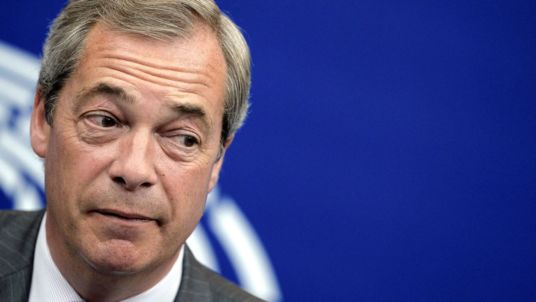-
Tips for becoming a good boxer - November 6, 2020
-
7 expert tips for making your hens night a memorable one - November 6, 2020
-
5 reasons to host your Christmas party on a cruise boat - November 6, 2020
-
What to do when you’re charged with a crime - November 6, 2020
-
Should you get one or multiple dogs? Here’s all you need to know - November 3, 2020
-
A Guide: How to Build Your Very Own Magic Mirror - February 14, 2019
-
Our Top Inspirational Baseball Stars - November 24, 2018
-
Five Tech Tools That Will Help You Turn Your Blog into a Business - November 24, 2018
-
How to Indulge on Vacation without Expanding Your Waist - November 9, 2018
-
5 Strategies for Businesses to Appeal to Today’s Increasingly Mobile-Crazed Customers - November 9, 2018
Post-Brexit EU needs joint military headquarters, says Jean-Claude Juncker
The proposals, echoing a plan put forward this week by France and Germany, are part of a broader attempt to rally European Union nations after Britain’s vote to leave the bloc and to capitalise on its departure – London having opposed the idea.
Advertisement
“Far too often national interests are brought to the fore”, he said. The lack of cooperation in defence matters costs Europe between €25 billion and €100 billion per year, depending on the areas concerned. “More defence in Europe doesn’t mean less transatlantic solidarity”, he continued before going on to outline the need for a European Defense Fund, which would stimulate military research and development.
EU officials say the goal is not a separate “EU Army” – but a better blending of member capabilities.
“Our friends and partners world-wide, who all deeply regret Brexit, are wondering whether Brexit is the beginning of the break down and the disintegration process for the European Union”.
Set up last year to run for three years until 2018 with a target of mobilizing 315 billion euros of investment, the current EFSI target is based on 21 billion euros of European Union money being leveraged 15 times by other investors.
Twenty-two of the EU’s 28-member states are also members of the US-led North Atlantic Treaty Organisation alliance, headquartered in Brussels, but Juncker insisted the bloc’s military ambitions would not undercut this key relationship.
Britain still has to officially trigger the exit negotiations to become the first member state to walk away from Europe’s biggest unity project. Immigration was a major reason that led a majority of Britons to vote for a Brexit – exit from the EU. “With member states contributing, we can get there even faster”, he said. Polish prime minister, Beata Szydlo, has called for “deep reforms” to cut back the power of “an authoritarian” Brussels, while Luxembourg’s Foreign Minister Jean Asselborn has called for Hungary to be totally expelled from the European Union over its hardline treatment of migrants.
Mr. Juncker said many European governments are weakened by the forces of populism and paralyzed by fear of losing elections.
However, the veteran politician lamented, “never before have I seen such little common ground between our member states”.
Dyson told the Daily Telegraph that European Union nations “are going to want to have a free trade deal with us more than the other way round”, because Europe exports more to Britain than it imports.
Hungary is to hold a referendum in October on whether to reject the EU’s key policy on mandatory migrant quotas.
Responding to Jean-Claude Juncker’s address to MEPs, Mr Farage lamented what he called “more of the same” and “more Europe not less Europe”.
Advertisement
Roaming surcharges are planned to disappear in the European Union from mid-2017, but the original legislation allowing this also gives operators a right to limit the amount of roaming usage at domestic rates in order to prevent abuse.





























